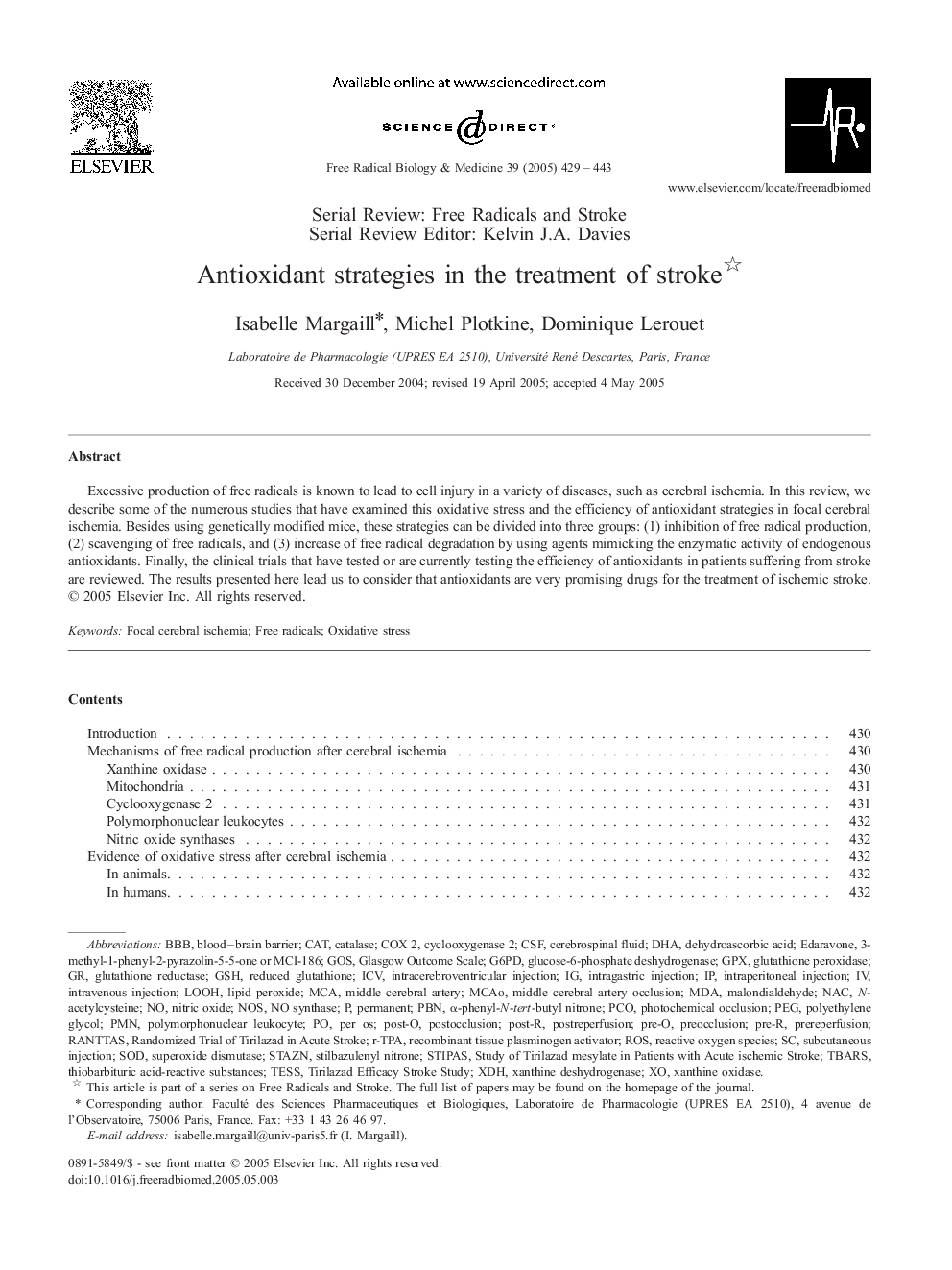| Article ID | Journal | Published Year | Pages | File Type |
|---|---|---|---|---|
| 10739114 | Free Radical Biology and Medicine | 2005 | 15 Pages |
Abstract
Excessive production of free radicals is known to lead to cell injury in a variety of diseases, such as cerebral ischemia. In this review, we describe some of the numerous studies that have examined this oxidative stress and the efficiency of antioxidant strategies in focal cerebral ischemia. Besides using genetically modified mice, these strategies can be divided into three groups: (1) inhibition of free radical production, (2) scavenging of free radicals, and (3) increase of free radical degradation by using agents mimicking the enzymatic activity of endogenous antioxidants. Finally, the clinical trials that have tested or are currently testing the efficiency of antioxidants in patients suffering from stroke are reviewed. The results presented here lead us to consider that antioxidants are very promising drugs for the treatment of ischemic stroke.
Keywords
α-phenyl-N-tert-butyl nitroneTBARSNOSGOSICVGPXNACGSHMCAOG6PDNO synthasePMNCATPCOXDHPBNCOX 2r-TPAMDAMCATESSXanthine oxidaseN-acetylcysteinePer osROSEdaravoneDehydroascorbic acidmiddle cerebral artery occlusionFocal cerebral ischemiaIntracerebroventricular injectionintraperitoneal injectionIntravenous injectionSubcutaneous injectionOxidative stressPermanentDHAFree radicalsSODBlood–brain barrierBBBSuperoxide dismutasecyclooxygenase 2middle cerebral arteryRecombinant tissue plasminogen activatorLOOHpolymorphonuclear leukocytemalondialdehydeCerebrospinal fluidCSFGlasgow Outcome Scalethiobarbituric acid-reactive substancesNitric oxideLipid peroxidepolyethylene glycolPEGCatalasereduced glutathioneglutathione reductaseglutathione peroxidaseReactive oxygen species
Related Topics
Life Sciences
Biochemistry, Genetics and Molecular Biology
Ageing
Authors
Isabelle Margaill, Michel Plotkine, Dominique Lerouet,
